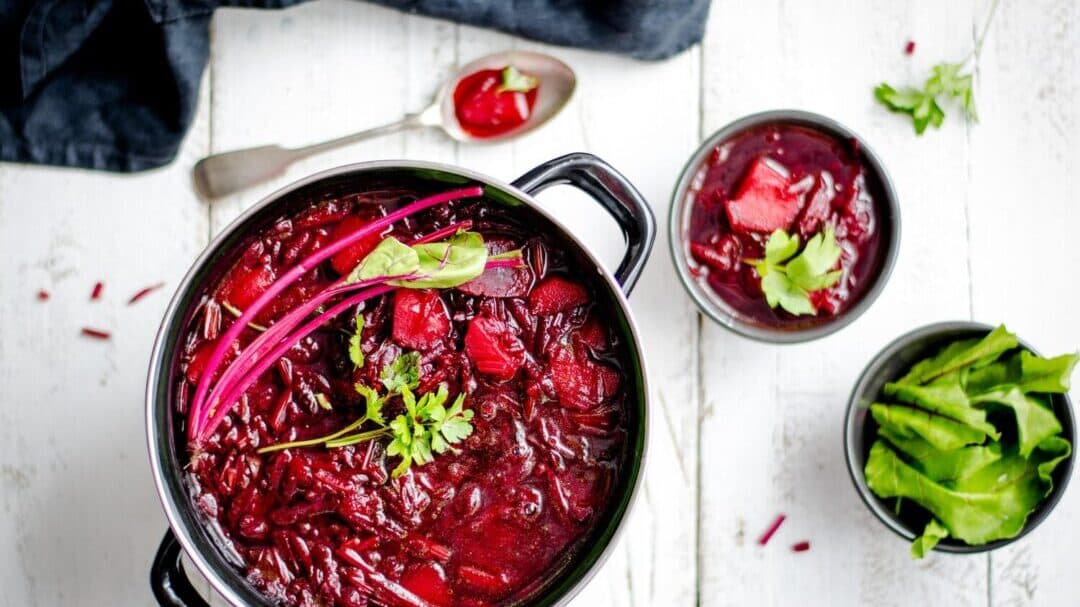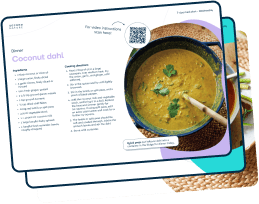Myth: ‘You should eat alkaline foods to avoid your body being too acidic.’
The alkaline diet: The bottom line
- We wouldn’t recommend following the alkaline diet word for word.
- The premise of the alkaline diet is based on no scientific evidence and may result in you avoiding otherwise healthy foods such as meat, fish, eggs, and dairy.
- Unfortunately, the alkaline diet is just another fad diet devised to sell cooking books and make influencers famous.
- It’s built on the notion that high-acidic diets are linked to disease, and to cure disease, you just need to avoid acidic foods.
- The alkaline diet proposes that by avoiding acidic foods you can lower your body’s PH level and be healthier.
- The truth is, your kidneys filter your blood for you and your body is extremely competent at managing its PH levels and this isn’t affected by your diet in the overly simplistic way the alkaline diet suggests. If your body couldn’t do this, you would be dead. (This sounds melodramatic but it’s true.)
- The pioneer of the alkaline diet, Robert Young, is now facing jail time for practising medicine without a license and wrongly treating cancer patients with the alkaline diet.
- The recommendations of the alkaline diet to avoid ultra-processed foods and sugar drinks and eating more whole foods is valid.
The alkaline diet was initially developed with the idea of helping individuals with kidney disease.
Since kidneys filter the blood and maintain acidity levels, the rationale was that when kidney function is compromised, adjusting the diet to reduce the acid load might slow the progression of the disease.
However, the alkaline diet has become the latest fad adopted by ordinary, healthy people who claim that it lowers the acidity in their bodies.
What is the alkaline diet?
The alkaline diet, also known as the alkaline-ash diet or acid-alkaline diet, is built upon the notion that a high level of acidity in our bodies is linked to disease.
At a high level, the claim is that eating more ‘alkaline producing’ foods – including vegetables, fruit, nuts, and legumes – can help to neutralise the acidity of your body.
Conversely, eating ‘acid-producing’ foods – such as meat, dairy, eggs, and grains – can harm your health.
Any eating plan that reduces ultra-processed food is good, which is what the alkaline diet has in its favour.
However, it also cuts out some of the most nutritious foods – meat, fish, eggs and dairy products – and has no means of delivering complete proteins.
Where do the cracks start to show?
The first point is that the body is highly effective at maintaining a steady acidity/alkaline balance, scientifically known as your ‘pH level’.
Low pH (0-6) means acidic, medium pH (7) means neutral, and high pH means alkaline (pH 8-14).
There are also very different pH levels in other parts of the body. For example, the stomach has a low pH (2-3) typically due to stomach acid, which breaks down food for digestion.
The blood has quite a strict, neutral pH (7.35-7.45), and no foods you eat will change this. If your blood pH level does change out of these parameters, you will become very unwell, and it will likely be fatal.
Our bodies have complex systems in place to regulate the pH levels of our blood. For example, the kidneys.
When blood is filtered by the kidneys, reabsorption and secretion of hydrogen (acidic) and bicarbonate (alkaline) ions occur. This is why urine pH changes: our kidneys remove excess acidity to be excreted in our urine.
This is also why using urine pH level to determine blood pH, as many studies cited in support of the acid-ash hypothesis do, is invalid.
Alkaline diet and conditions
Osteoporosis
Osteoporosis is when your bones become brittle and fragile from tissue loss.
The alkaline diet hypothesises that protein, in particular, animal protein, is acid-forming. To neutralise this acid, our bodies dissolve bone matter to release bicarbonate.
By this theory, protein should be detrimental to bone health and increase our risk of osteoporosis.
However, this claim was not supported by a thorough systematic review of the evidence for the effect of an alkaline diet on bone health. Randomized controlled trials demonstrated that protein has positive effects on bone density.
Interestingly, Dr William Davis explains in his book, ‘Wheat Belly’, that animal foods, although on the acidic side of the food table, are not as harmful to pH balance as this would suggest: ‘Animal protein exerts a bone-strengthening effect through stimulation of the hormone IGF-1, which triggers bone growth and mineralisation’.
He describes wheat, white flour, and pasta as the most acidic foods. He argues that society as a whole is greatly overconsuming these ultra-processed carbohydrates.
When confronted with such a sustained level of acidity, the body draws from its alkaline stores to compensate. Most notably, ‘the body will sacrifice bone health to keep pH stable’.
He also argues that sugary drinks are another source of acid and gives a fascinating example of the association between increased soft drink consumption and bone breakages: ‘The constant draw on calcium from bones is associated with fivefold increased fractures in high school girls who consume the most carbonated colas’.
We should be quick to remember that association does not mean causation, and it might be the case that high school girls consuming a lot of soft drinks are also falling on other aspects of their diet.
Overall, it seems the alkaline diet does not reduce the risk for osteoporosis and could harm rather than improve bone health.
Cancer
Despite the media plugging the belief that the alkaline diet can prevent and even cure cancer, the scientific evidence is near to non-existent.
A systematic review published by the British Medical Journal explored the link between the alkaline diet and all types of cancer. One study was included in the review due to the lack of available, high-quality human trials.
The one study was a prospective cohort study that examined whether raised urinary pH affects bladder cancer.
As discussed, any excess acid gets excreted in our urine, so this is an exciting avenue to explore. However, the single study exploring this link found no significant effect.
The lack of evidence does not mean we can completely disprove the claim that the alkaline diet helps to prevent/ treat cancer, but it points out that it was not built upon science.
Therefore, there is currently no reason to suggest that individuals with cancer would benefit from the alkaline diet, nor that it can help with prevention.
Those living with a medical condition should seek advice from a licensed medical professional.
The pioneer of the alkaline diet, Robert Young, is now facing jail time for practising medicine without a license and wrongly treating cancer patients with the alkaline diet.
Alkaline diet myths
This final note dispels some lingering concerns about the alkaline diet.
- Alkaline water
There is simply no science to suggest that drinking more ‘alkaline’ water has any health benefits. Basic tap water is usually alkaline.
As previously mentioned, when water hits your stomach, which is acidic, it’s immediately neutralised. Paying £2.99 for 500ml of ‘miracle’ water is no guarantee that it is any different to what comes out of our taps for free.
- Chlorophyll supplements
Chlorophyll has attracted much attention as a critical alkaline-forming substance, to the extent that chlorophyll supplements are recommended. There are claims that it has ‘anti-cancer’ and ‘anti-bacterial’ properties and can ‘detox’ our bodies.
First, it is worth noting that, as with anything we eat, chlorophyll will be digested and degraded, and we don’t need to be ‘detoxed’ as our livers do a pretty good job of this.
Secondly, all evidence that might suggest ‘anti-cancer’ and ‘anti-bacterial’ properties are in vitro. This means they have been studied in a petri dish in a lab rather than on the human body.
In vitro studies are interesting, but they have no bearing on whether these mechanisms would occur in the human body under normal physiological conditions.
Lastly, many supplements are categorised as food rather than medication and don’t go through the usual safety checks and regulations a medicine would go through before being sold.
The bottom line is that many green vegetables and herbs contain chlorophyll, alongside other vitamins and minerals, such as spinach, parsley, and green beans.
There’s no evidence to suggest supplementing chlorophyll has benefits above and beyond healthy eating.
Take home message
So what is our conclusion here? We would strongly recommend you don’t follow the alkaline diet word-for-word. However, there are two underlying themes that we agree on:
- Cutting down your consumption of ultra-processed carbohydrates and sugary drinks.
- Eating more real food, i.e. a balance of minimally processed animal foods and vegetables.




